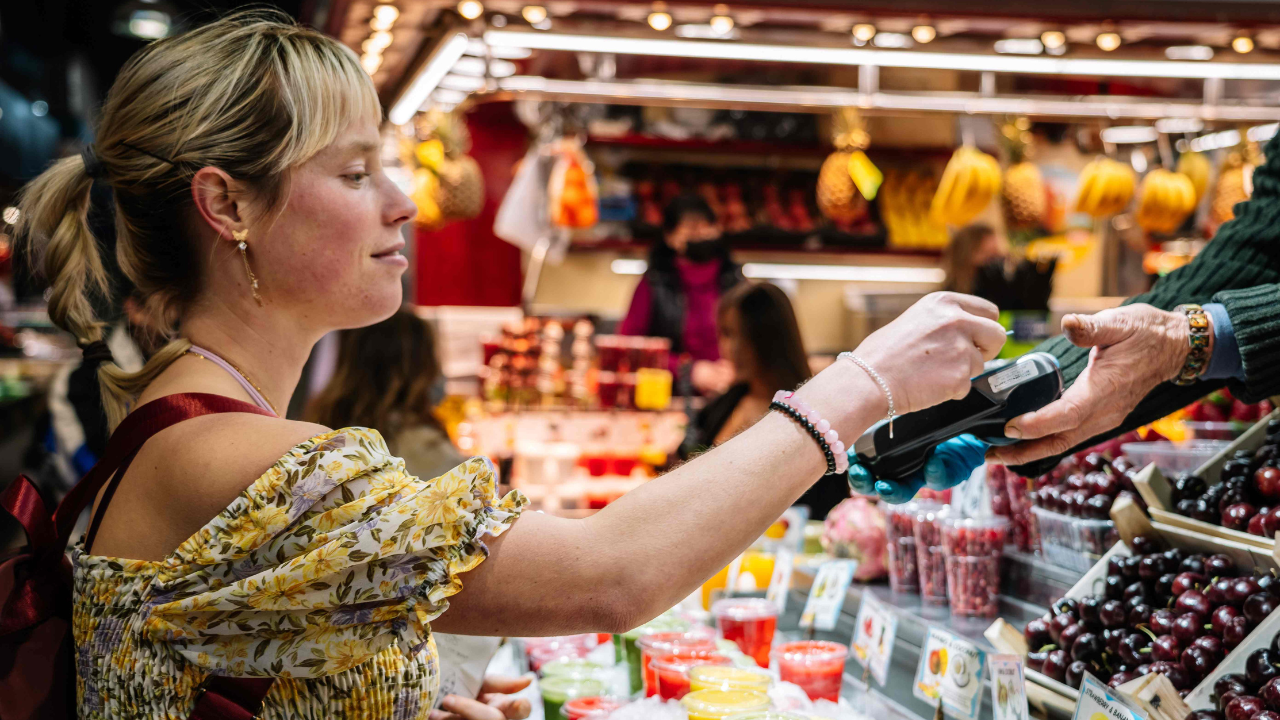Unpack these cybersecurity tips for a stress-free vacation
May 14, 2025 | By Vicki Hyman
No one would ever mistake me for chill, but come vacation time, my anxiety ramps up, not down. Is three hours enough time to get to the airport three miles away? Did I pack my earbuds? Did I pack my back-up earbuds? My back-up back-up earbuds? Is the tip included in the service charge? Is the service charge the same thing as a cover charge? Does sunscreen come in 1,000 SPF?
This is precisely the mental state that scammers seek to exploit — when we’re overwhelmed, distracted and on the move. From fake confirmation links to bogus guided tour offers that require pre-payment to manipulated photos of vacation rentals to hidden fees, the travel industry is a known target for fraudsters and is among the most susceptible to attacks, according to an analysis by the Mastercard Economics Institute —with the fraud rate in travel-related industries experiencing more than twice the median fraud rate across all sectors.
In fact, a new global Mastercard Economics Institute report on travel based on aggregated and anonymized transaction data reveals that reported fraud rates increased by more than 18% at popular summer destinations in warm periods and more than 28% during the cold season at winter destinations.
So as summer travel season gets underway, I asked Mastercard’s cybersecurity experts for tips on protecting my money, my data and my identity before I leave and while I’m on the go.
01
Book on reputable websites
When booking your flights, hotels or experiences abroad, interact only with reputable, established vendors. Before you snag yourself a deal, read the reviews and examine their site to ensure it is secure. Make sure the company you are booking with has a phone number or physical mailing address that you can verify before you proceed.

02
Use your own device and secure Wi-Fi networks
Never book or shop on a device you don’t own, or on public Wi-Fi networks, such as those in airports, train stations or cafés. Keep in mind that your information and financial accounts may be at risk if you use an unsecure network. Use your mobile data or, better yet, wait until you can use your home network. And keep your devices’ operating systems up to date — they contain critical security updates that protect you from vulnerabilities.
03
Know your rights
Check what travel benefits and insurance you have in place for your booking and while you are abroad, via your bank or your credit card provider. Familiarize yourself with the chargeback process. This can help prepare you for when you find yourself in a tricky situation — for example, if there are fraudulent or unauthorized charges on your account, damaged or defective goods or incorrect charges. It can help to preregister your trip location and dates with your credit card provider to ensure they know the purchases you make while away are not flagged as suspicious.
04
Protect your tech

Setting up multifactor authentication — a combination of a unique, hard-to-guess passcode and biometrics like your face or fingerprint — means that if your passcode is compromised, fraudsters won’t be able to meet the second authentication requirement, which stops them from gaining access to your accounts. In addition, pack a charging cord with a traditional plug. USB and USB-C cables can transfer data, which could occur when you plug the cable into a public USB/USB-C port. Using a traditional plug removes the risk of data transfer.
05
Back up to the cloud and carry hard copies
Set your phone or device so that data is backed up to the cloud: If you lose your device, you will still be able to access your travel documentation. As an extra precaution, carry hard copies of all your travel documents. Take a photo of the inside of your passport, especially the bar code, which will help if you need to request a replacement when traveling.
06
Know your card's PIN and check contactless limits
Knowing your credit card and daily debit card limits and PINs can help make travel easier. The PIN assigned to your card is required at ATMs and at some payment terminals abroad. Some countries also have limits on how much you can spend per contactless transaction.
07
Set up account alerts
Setting up alerts can help you monitor your accounts easily and quickly identify transactions that you don’t recognize. Should you suspect fraudulent activity, contact the financial institution that issued your card immediately.
08
Have multiple payment options

Keep an alternate form of payment in a different bag in case your wallet is lost or stolen. Add your eligible debit and credit cards to a digital wallet so you can pay with your mobile device wherever digital payments are accepted — in stores, online and in apps.
09
Don't overshare
Avoid posting your location or travel agenda on social media. Sharing these details allows potential thieves to keep track of where you are, making it easier for them to time a crime. The same goes for your out of office email message — be careful which personal details you share, as it could prove useful to fraudsters.
10
Report your lost card quickly
If your debit or credit card is lost or stolen while you’re traveling, report it to your bank right away. If you previously added your card to a digital wallet and you are still in possession of your device, your card issuer may be able to update your digital wallet with your new card information so that you can continue using it while you wait for your new card to arrive.
This story was originally published July 1, 2024 and has been updated to reflect new research on travel fraud and fresh tips.

Report
Travel trends 2025: Purpose-driven journeys
From yoga mats to stadium seats, discover the motivations fueling the travel economy this summer. The Mastercard Economics Institute's annual report harnesses a unique lens of spending to understand the trends that matter to consumers.
Read the report

Story
Top 5 global destinations for summer 2025
These cities showed the largest relative gains in travelers from last year, according to an analysis of flight bookings by the Mastercard Economics Institute.
Read the story

Deep dive
Tapas and tranquility: Barcelona’s reinvention as the capital of chilled chic and gastronomic delight
The rise of digital tools, like dining and rideshare apps and mobile wallets, has made it easier than ever for travelers to commune with the city’s ancient culinary spirit.
Read the story

Story
From ‘om’ to ‘nom nom’: Why we’re traveling in 2025
Travelers are prioritizing meaningful experiences, from wellness retreats to off-the-grid escapes to cities with culinary cred.
Read the story